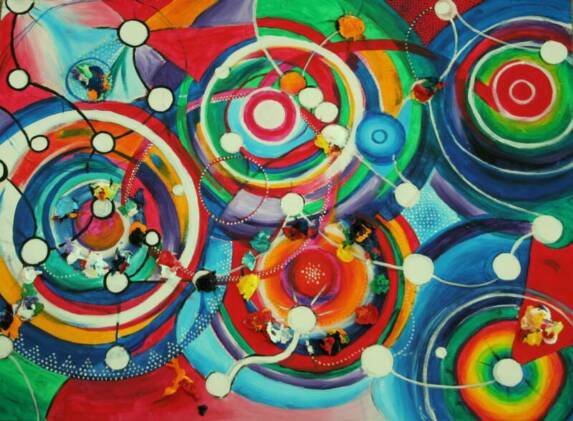Mihera Paterson is a Maori poet (Ngati Whatua) writing in English. She is married with two grown sons. Also of Scots/Irish descent, she considers herself the daughter of three poetic, mythic and historical experiences that mesh surprisingly well together. She has an M.A. from Auckland University and was active there at poetry readings in the 80's . She continued writing while raising her family and battling bi-polar disorder. This year she read in public again for the first time in 25 years at Poetry Live.
This is the Song of Truganinni
Part One
I’m putting you on notice
That I really have had
Just about enough
Of your reminding me
That my ancestors were cannibals
(With the subtext that it was
Then alright for your ancestors
To break every compact, every promise,
Every oath, every accord,
Every contract, every concord,
Every bond, every covenant,
Every deal, every settlement,
Every understanding, every Treaty.)
But this is the song of Truganinni
The last of the full Tasmanians
The others gone, displaced to starve
Hunted for sport, razed by new diseases
Deliberately introduced
Untreated by Official Policy
But Truganinni she was a Christian
Embracing with fervour
The Good News of the White Jesus
In whose sight all were equal.
And on her death bed she begged
For the dignity, the blessing of
A Christian woman’s funeral.
But those Civilised men
They knew better than
That old fuzzy headed ape.
They boiled her up
And in their museum they hung her
A wired together skeleton of niggery bones
With a label saying forever,
“This was only ever a Thing.”
In 1876 they mounted
That particular illuminating display
Nearly forty years after my ancestors
(Also embracing the great White Jesus gift)
Had forever put those ancient
Last Suppers far behind them.
Part Two
My cousin Maria and I
Go to see “Rabbit Proof Fence”
And when it is finished
We sit a while in silent horror
Both knowing that the other is thinking
“There but for the grace of God.”
And then we hold hands and cry –
Pointless, wanting a hand-out,
Harking back to a past that’s over,
Expecting more than our fair share,
Great at singing but slack at working,
Do well in the Army because of the structure,
Deservedly over represented in crime statistics,
Useless as parents, self serving,
Indigenous tears.
Baby Talk
“Ma is white, pango is black
Kakariki is green
Whero is red, paraune’s brown
A, E, I, O, U.”
I am climbing, taking baby steps
Up the steep side of a sacred mountain
Where my illustrious ancestor’s people
Carved the living landscape into
A representation of his own facial ta moko.
I was in the A stream in school
The second language I learned
Was German – the “useful academic language”
So I can tell you quite fluently in German
That I can hear my ancestors calling me
In every gust of wind, the rustling of every tree
The sibilant turning of tide-edge pebbles in the darkness
In the repeated cry of the morepork, intense
As a chanted perfume in the moonlight
But I cannot understand what they are saying
And I cannot answer.
I will have to describe auf Deutsch
The desolate gulf which separates
Me from my ancestors.
A grown woman I can call to them
Only in baby talk –
“Ma is white, pango is black
Kakariki is green.
A, E, I, O, U.
(*Note The vowel song is one of the first things learned in beginner’s Maori class)


